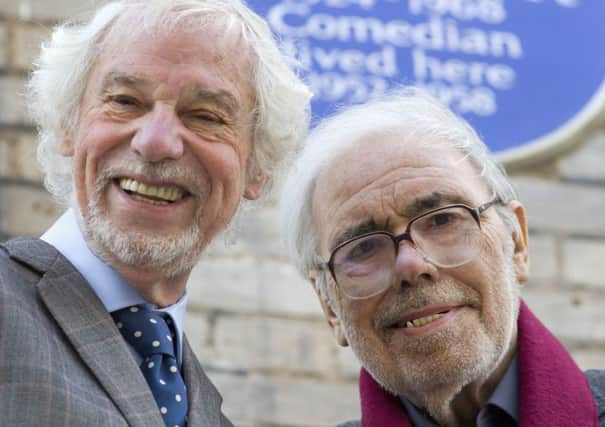Ray Galton, comedy writer


Galton and Simpson had met as teenagers in London’s Milford Sanatorium as they recuperated from near-fatal bouts of tuberculosis. They discovered they were on the same comedic wavelength and wrote to Frank Muir and Denis Norden, the leading scriptwriters of the time, for advice on submitting scripts to the radio.
With their encouragement, they began sending jokes to the BBC producer Dennis Main Wilson, then running a vehicle for the comedian Derek Roy, called Happy Go Lucky. Their fee was five shillings, but as they became prolific they were put on the payroll, and their earnings rose to for 20 guineas a fortnight.
Advertisement
Hide AdAdvertisement
Hide AdGalton was born in Paddington, west London, on July 17 1930.
After school he worked at the Transport and General Workers’ Union, but when he was 18, TB struck.
At one point he had been given weeks to live. Simpson, a former shipping clerk, had been read his last rites. Eventually, newly available antibiotics saved them both.
They had bonded over a love of Jack Benny, Bob Hope and the other American comics whose shows could be heard on the armed forces radio networks.
“We hit it off immediately,” Simpson recalled.
Advertisement
Hide AdAdvertisement
Hide AdThey proposed the hospital put on a comedy show, but were told to do it themselves and began working on sketches.
It was Main Wilson who connected them with Tony Hancock. He had been appearing on radio’s Educating Archie and had been given his own show in the earliest days of ITV by the impresario Jack Hylton, but Main Wilson sensed there was more to him and, with Galton and Simpson’s inspired scripts, Hancock’s Half Hour was born.
It was the first time a complete half hour comedy had been tried. There were to be no musical interludes, no silly voices. “We never quite managed that one,” Simpson said, perhaps with Kenneth Williams’ contributions in mind.
The show’s transfer to television made its star the most successful comedian of his era, but he was famously unable to enjoy the spoils. He jettisoned his co-star, Sid James, and after the lukewarm reception of their film, The Rebel, he dispensed with the services of Galton and Simpson, too.
Advertisement
Hide AdAdvertisement
Hide AdHancock’s career went into a downward spiral, but his former writers continued on a stellar path. Invited in 1962 by the BBC’s head of comedy, Tom Sloan, to create a new series of self-contained half-hours to be called Comedy Playhouse, they created the rag and bone men, Steptoe And Son, a father and son riven by hatred and jealousy but at the same time bound by mutual need.
It earned them Writers’ Guild Awards in 1962 and 1963, and they were also celebrated with OBEs in 2000 and a Bafta Fellowship, the Academy’s highest honour, in 2016.
The Comedy Playhouse formula was revived many times, most notably in the 1970s at Yorkshire TV, where Arthur Lowe was cast as a cantankerous, holidaying Brit trapped in an Alpine ski lift.
Simpson said they remained “almost Siamese twins” until he retired from writing in 1978.
Advertisement
Hide AdAdvertisement
Hide AdGalton went on to collaborate with Johnny Speight, in Spooner’s Patch, set in a police station and starring Donald Churchill and Patricia Hayes, from 1977 to 1981, and with John Antrobus in Room at the Bottom, another Yorkshire TV production, from 1986 to 1987. The show was a remake of one Antrobus had written in the 1960s at ABC Television for Lionel Jeffries and the director Dick Lester.
“I really have no other interests,” Galton said.
The final sitcom of his career, in which he worked with Frankie Howerd, Peter Sellers, Leonard Rossiter and Arthur Lowe again, was 1997’s Get Well Soon, based on his experiences in Milford.
He and his former partner would continue meeting for coffee and comedy talk until shortly before Simpson’s death, at 87, last year.
With his late wife Tonia, Galton had three children: Andrew, Lisa and Sara.